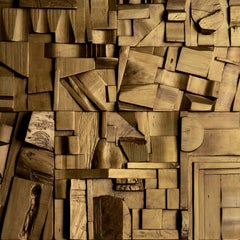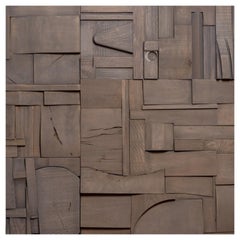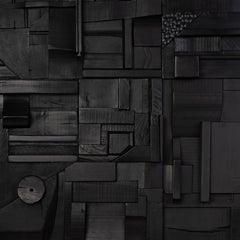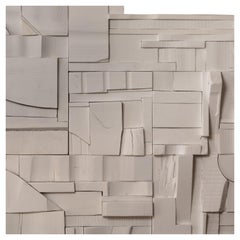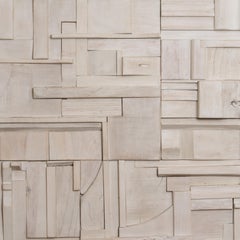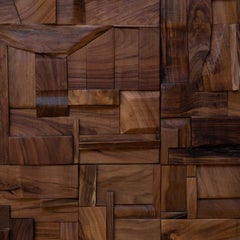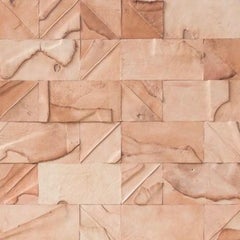Collage Tiles
2010s Mexican Brutalist Decorative Art
Wood
21st Century and Contemporary Mexican Brutalist Decorative Art
Wood
2010s American Brutalist Decorative Art
Wood
21st Century and Contemporary Mexican Brutalist Decorative Art
Wood
2010s Mexican Brutalist Decorative Art
Wood
2010s Mexican Brutalist Wall-mounted Sculptures
Wood
2010s Mexican Brutalist Contemporary Art
Wood
2010s Mexican Brutalist Contemporary Art
Wood
21st Century and Contemporary Mexican Brutalist Wall-mounted Sculptures
Plywood, Leather
21st Century and Contemporary Mexican Brutalist Wall-mounted Sculptures
Leather, Wood
2010s Mixed Media
Stone
Mariu Palacios"Gloryhole del psicoanálisis II (Dile lo que no pudiste decirle)" tiles, collage, 2024
Vintage 1970s American Mid-Century Modern Table Lamps
Walnut, Ceramic
21st Century and Contemporary Surrealist Mixed Media
Ceramic, Paper, Acrylic
21st Century and Contemporary Surrealist Mixed Media
Ceramic, Paper, Acrylic
21st Century and Contemporary Surrealist Mixed Media
Ceramic, Paper, Acrylic
1970s American Modern Still-life Sculptures
Copper
21st Century and Contemporary Abstract Geometric Mixed Media
Archival Paper, Inkjet, Paint, Panel
21st Century and Contemporary Abstract Geometric Mixed Media
Paint, Paper, Panel, Inkjet
Vintage 1950s American Mid-Century Modern Paintings
Paint
21st Century and Contemporary Abstract Geometric Mixed Media
Silver Leaf
21st Century and Contemporary Abstract Geometric Mixed Media
Paint, Paper, Panel, Digital
21st Century and Contemporary Abstract Geometric Mixed Media
Paint, Panel, Archival Paper, Inkjet
2010s Contemporary Landscape Drawings and Watercolors
Watercolor, Archival Paper
2010s Contemporary Landscape Drawings and Watercolors
Watercolor, Archival Paper
2010s Abstract Geometric Mixed Media
Ink, Mixed Media, Handmade Paper, Digital Pigment, Screen
2010s Abstract Geometric Mixed Media
Mixed Media, Archival Paper, Digital Pigment
2010s Abstract Geometric Mixed Media
Acrylic, Board, Digital Pigment
2010s Abstract Geometric Mixed Media
Acrylic, Board, Digital Pigment
2010s Abstract Geometric Mixed Media
Mixed Media, Digital Pigment
21st Century and Contemporary Abstract Abstract Paintings
Found Objects, Mixed Media, Oil
21st Century and Contemporary Abstract Abstract Paintings
Mixed Media, Oil
21st Century and Contemporary Abstract Abstract Paintings
Found Objects, Mixed Media, Oil
21st Century and Contemporary Abstract Abstract Paintings
Mixed Media, Oil
21st Century and Contemporary Abstract Abstract Paintings
Found Objects, Mixed Media, Oil
21st Century and Contemporary Abstract Paintings
Mixed Media, Oil
21st Century and Contemporary Abstract Abstract Paintings
Found Objects, Mixed Media, Oil
21st Century and Contemporary Abstract Abstract Paintings
Found Objects, Mixed Media, Oil
21st Century and Contemporary Abstract Abstract Paintings
Found Objects, Mixed Media, Oil
20th Century Abstract Abstract Paintings
Found Objects, Mixed Media, Oil
21st Century and Contemporary Abstract Abstract Paintings
Found Objects, Mixed Media, Oil
21st Century and Contemporary Abstract Abstract Paintings
Found Objects, Mixed Media, Oil
21st Century and Contemporary Abstract Abstract Paintings
Mixed Media, Oil
21st Century and Contemporary Abstract Abstract Paintings
Found Objects, Mixed Media, Oil
21st Century and Contemporary Abstract Abstract Paintings
Mixed Media, Oil
21st Century and Contemporary Abstract Abstract Paintings
Found Objects, Mixed Media, Oil
21st Century and Contemporary Abstract Abstract Paintings
Found Objects, Mixed Media, Oil
21st Century and Contemporary Abstract Abstract Paintings
Found Objects, Mixed Media, Oil
21st Century and Contemporary Abstract Abstract Paintings
Found Objects, Mixed Media, Oil
21st Century and Contemporary Abstract Abstract Paintings
Mixed Media, Oil
21st Century and Contemporary Abstract Abstract Paintings
Found Objects, Mixed Media, Oil
21st Century and Contemporary Abstract Abstract Paintings
Found Objects, Mixed Media, Oil
21st Century and Contemporary Abstract Abstract Paintings
Mixed Media, Oil
21st Century and Contemporary Abstract Abstract Paintings
Mixed Media, Oil
21st Century and Contemporary Abstract Abstract Paintings
Mixed Media, Oil
21st Century and Contemporary Abstract Abstract Paintings
Found Objects, Mixed Media, Oil
21st Century and Contemporary Modern Abstract Prints
Acrylic, C Print, Other Medium
1970s American Modern Mixed Media
Plywood, Mixed Media
Vintage 1960s American Paintings
- 1

